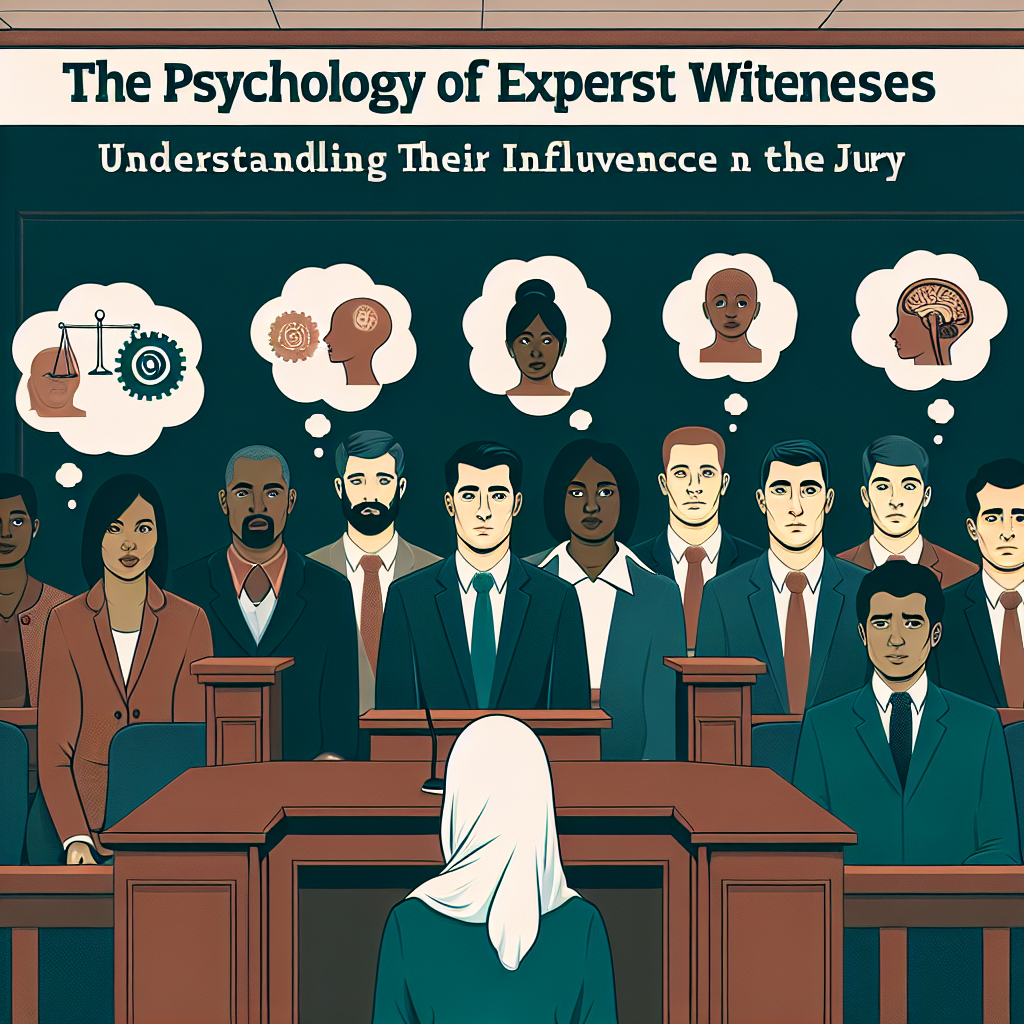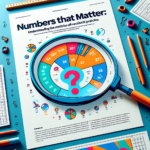
Introduction
In the high-stakes arena of legal proceedings, expert witnesses often serve as pivotal figures, dramatis personae who can sway the hearts and minds of jurors. Their powerful testimony, informed by years of experience and knowledge, is frequently the backbone of a case. But what truly lies at the intersection of expertise and courtroom dynamics? The psychology of expert witnesses: understanding their influence on the jury reveals much about how these experts can shape perceptions and sway outcomes. As jury members wrestle with complex evidence, the ability of an expert witness to present information compellingly is not just an asset; it’s a necessity.
This exploration digs deep into the psychology behind expert witnesses and their profound impact on jury decision-making, shaped by perceptions, credibility, and cognitive biases.
Expert Witnesses in the Courtroom: An Overview
What is an Expert Witness?
An expert witness is typically someone with specialized knowledge, skills, or experience that is relevant to the subject matter of a legal case. They provide testimony that goes beyond what an average juror could reasonably understand, aiming to illuminate complex scientific, technical, or professional information. Common fields for expert witnesses include medicine, engineering, psychology, and finance.
The Role of Expert Witnesses
The role of expert witnesses is multifaceted:
- Clarification: They help clarify complicated issues for the jury.
- Credibility: Their presence lends credibility to a case.
- Persuasion: They play a pivotal role in persuading the jury toward a particular viewpoint.
Understanding the psychology of expert witnesses: understanding their influence on the jury hinges on their ability to resonate with the emotional and rational facets of jury members.
The Psychological Dynamics at Play
Building Credibility
One of the key psychological elements that experts bring into the courtroom is their credibility. Research shows that jurors often look for a sense of trustworthiness in expert witnesses, which can be rooted in:
- Education: Degrees from prestigious institutions.
- Experience: Years spent in their field.
- Presentation: Confidence and clarity in communication.
Case Study: The Daubert Standard
In the landmark case of Daubert v. Merrell Dow Pharmaceuticals, Inc., the Supreme Court established criteria for the admissibility of expert testimony, emphasizing the importance of relevance and reliability. This ruling has since shaped how experts are perceived, reinforcing the notion that credible, scientifically sound testimony is more likely to influence jurors positively.
Analysis: The outcomes in Daubert underscore how an expert’s credibility can substantially influence a jury’s decision, primarily through the lens of perceived expertise and reliability.
Cognitive Biases and the Influence of Expert Testimony
Jurors are not mere blank slates; they come into the courtroom with their biases and preconceived notions. Expert witnesses must navigate these biases to present their testimony effectively.
Confirmation Bias
This cognitive bias involves the tendency for individuals to favor information that confirms their pre-existing beliefs. For instance, in a criminal trial involving alleged medical malpractice, jurors who have had negative experiences with medical professionals may be more inclined to believe testimony that supports this skepticism.
Visual Aid: Table 1 — Factors Influencing Juror Perception of Expert Testimony
| Factor | Description | Influence |
|---|---|---|
| Credibility | Education, expertise, and past experience | High |
| Biases | Pre-existing beliefs impacting interpretation | Medium-High |
| Delivery Style | Presentation skills, clarity, and confidence | Medium |
| Complexity of Evidence | Complexity of topic can obscure or clarify the main message | Variable |
Emotional Resonance
Expert witnesses can also leverage emotional appeals alongside factual information. When experts share compelling narratives or personal experiences related to their field, they can create an emotional connection with the jury, improving the likelihood that their testimony will resonate and be remembered.
Jury Dynamics and Groupthink
The influence of social dynamics within a jury can significantly affect how expert testimony is received. Groupthink—the tendency for group members to minimize conflict and reach consensus—can lead jurors to align with the majority, even if they have reservations about the expert’s opinion.
Case Study: The Jencks Act
The Jencks Act requires the government to provide defense attorneys with witness statements, enhancing transparency. This transparency can combat groupthink by better informing jury members, allowing them to evaluate expert testimony critically.
Analysis: Expert witnesses must be aware of this dynamic, tailoring their presentations to invite discussion rather than conformity, thus fostering a more thoughtful deliberation among jurors.
Strategies for Expert Witnesses: Engaging the Jury
Effective Communication Techniques
To maximize their impact, expert witnesses can utilize several strategies:
- Simplifying Complex Concepts: Breaking down complex topics into digestible parts can help jurors grasp key ideas.
- Visual Aids: Utilizing charts, graphs, and illustrations can clarify points and enhance engagement.
- Storytelling: Crafting narratives around data or findings can create a more memorable impression.
Addressing Fallacies and Misconceptions
Expert witnesses often encounter common misconceptions that can cloud juror understanding. They have the duty to address these directly and with clarity, using evidence-based arguments to clarify misunderstandings.
Example: In environmental cases, an expert should counter faulty assumptions about pollution effects by presenting clear, research-backed data on health impacts.
The Impact of Technology on Expert Testimony
Digital Tools and Their Use
Modern technology has revolutionized how expert witnesses engage with juries. Digital platforms allow for projections of evidence, interactive presentations, and even virtual demonstrations. These innovations serve not only to clarify complex information but also to enhance jurors’ engagement levels.
Reliability and Misinterpretation
While technology can be beneficial, it can also pose risks if jurors misinterpret digital evidence or become skeptical of its authenticity.
Case Study: The Use of DNA Evidence
Consider a case where DNA evidence was pivotal. Expert witnesses presenting such data must ensure that jurors fully comprehend the method of analysis and its implications on the case.
Analysis: It highlights the responsibility of expert witnesses to adequately explain advanced technology to ensure trust in their testimony.
Conclusion
The psychology of expert witnesses: understanding their influence on the jury encompasses a array of factors including credibility, cognitive biases, jury dynamics, communication strategies, and technological impacts. The interplay of these elements shapes not only how expert testimony is perceived but also how it influences verdicts.
Expert witnesses serve not only as providers of information but also as strategic communicators who can significantly sway juror decisions. For legal professionals and potential experts, recognizing these elements can lead to more effective courtroom strategies that enhance the clarity and impact of their testimony.
As we bring this discourse to a close, we invite you to reflect on the crucial role these experts play in the justice system. The next time you witness an expert testify, consider the layers of influence they wield within the jury—both psychological and situational.
FAQs
1. What qualifications make someone an expert witness?
Expert witnesses typically have advanced degrees or specialized knowledge in their field and relevant professional experience that establishes their expertise.
2. How can biases affect a jury’s perception of an expert witness?
Jurors may favor information that aligns with their existing beliefs, potentially leading to skewed interpretations of the expert’s testimony.
3. What are some common strategies for expert witnesses to engage juries?
Effective strategies include simplifying complex concepts, utilizing visual aids, and incorporating storytelling techniques.
4. How has technology changed the role of expert witnesses?
Technological advancements allow for enhanced presentations, interactive demonstrations, and new formats for conveying complex information, but they also come with risks of misinterpretation.
5. How can expert witnesses build credibility in the courtroom?
Credibility can be built through a strong educational background, extensive professional experience, and the ability to communicate effectively and confidently.
In sum, understanding the psychology of expert witnesses: understanding their influence on the jury opens the door to more effective communication strategies that can ultimately impact the legal outcomes.















